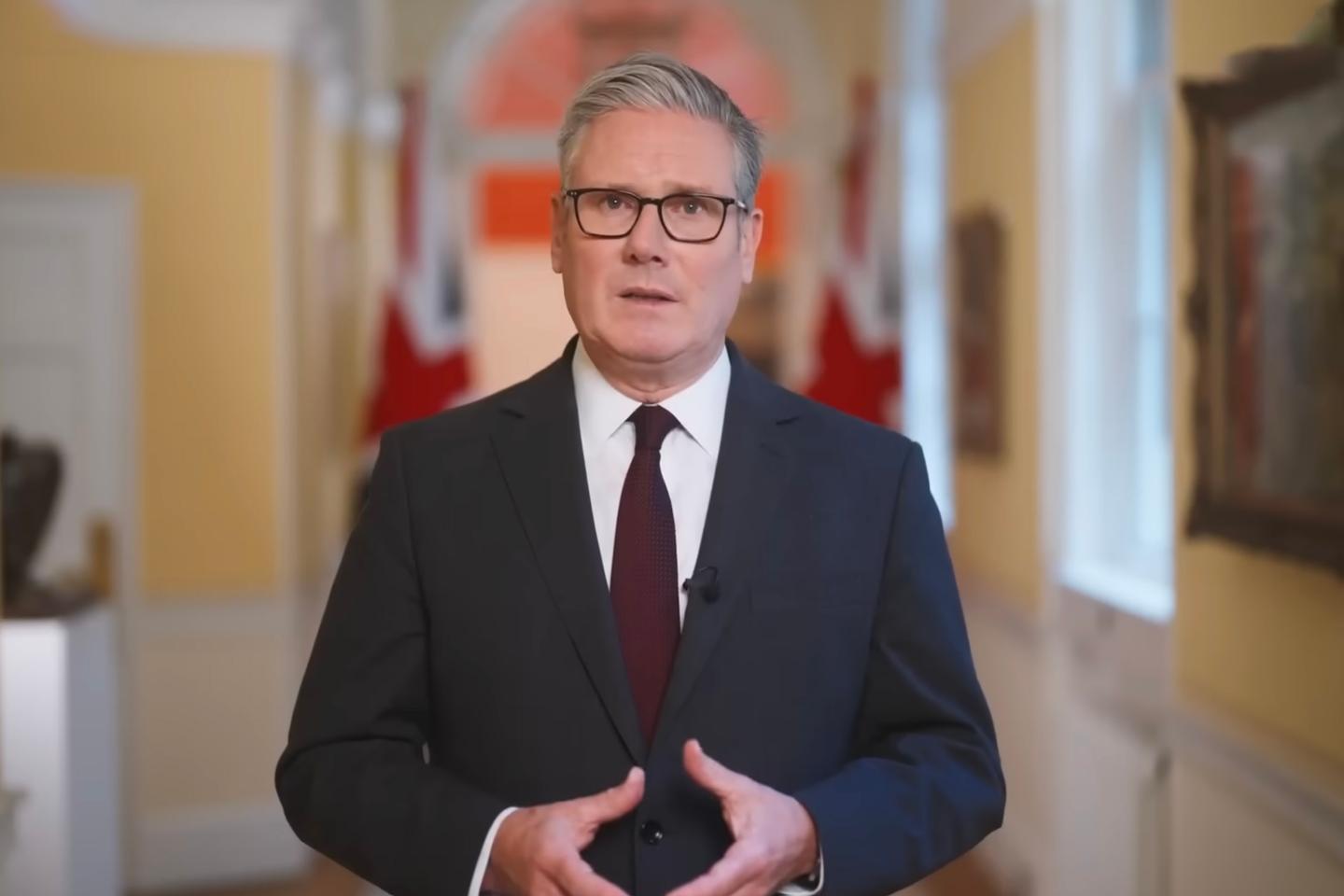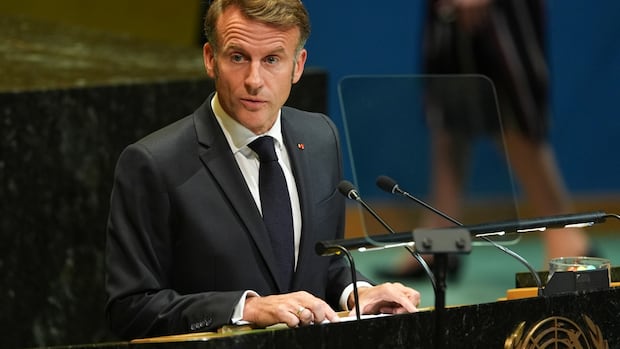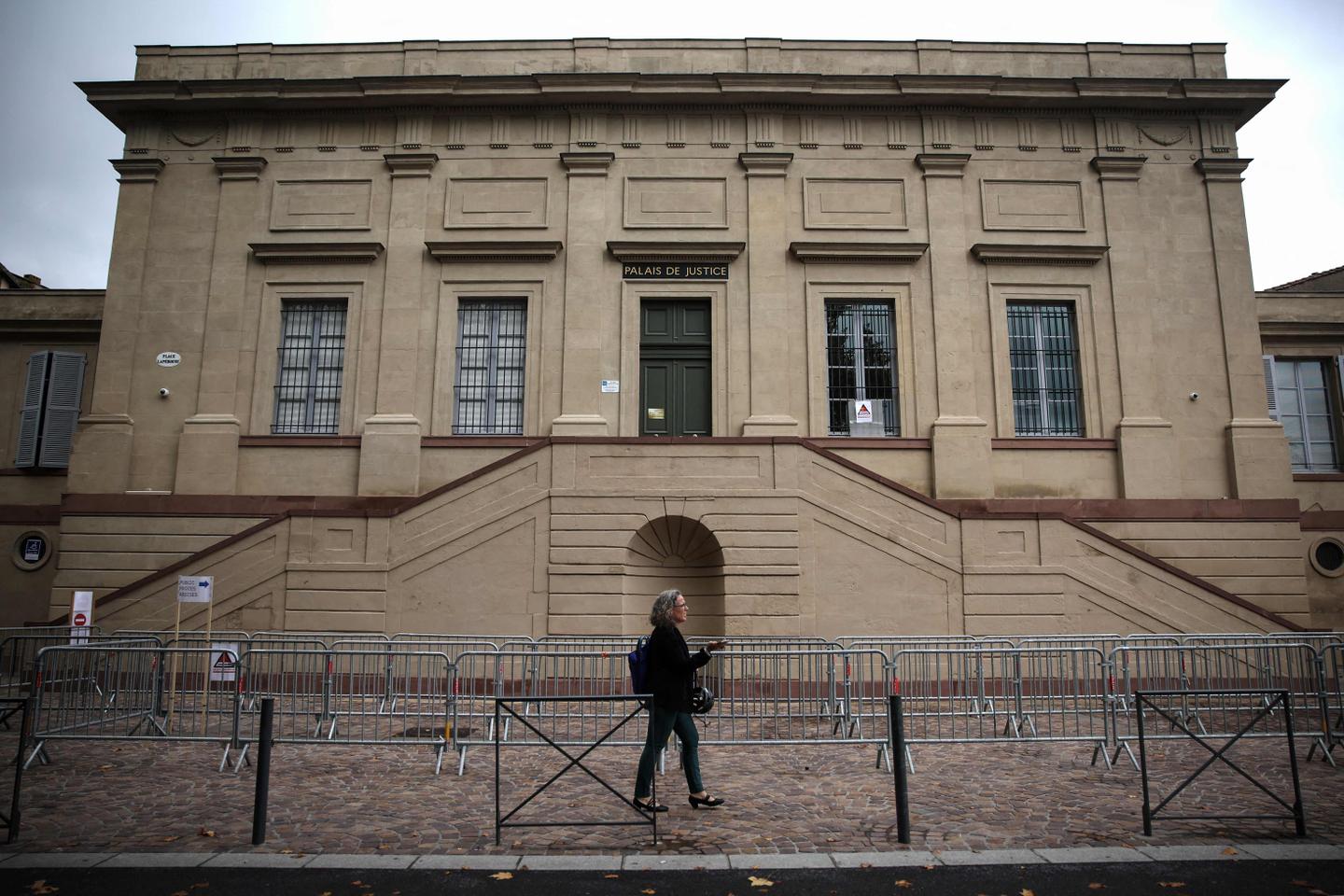Displaced Palestinians, fleeing northern Gaza due to an Israeli military operation, move southwards after Israeli forces ordered residents of Gaza City to evacuate to the south, in the central Gaza Strip, September 20, 2025. Photo: REUTERS/Dawoud Abu Alkas/File Photo
Highlights
Britain, Canada, France among those recognising a state
Israel, US call it harmful and a publicity stunt
Israel weighing possible West Bank annexation, officials say
France is preparing to formally recognise a Palestinian state, joining the UK, Canada and Australia as momentum builds behind the two-state solution.
President Emmanuel Macron will make the announcement Monday in New York, on the sidelines of the UN General Assembly, at a summit on the two-state solution co-hosted by France and Saudi Arabia.
Paris said Belgium, Luxembourg and Malta are also expected to declare recognition, along with the microstates of Andorra and San Marino.
Macron described the move as a "necessity," calling it the beginning of a political process aimed at delivering "peace and security for everybody."
The French president, in July, confirmed the decision in a letter to Palestinian Authority President Mahmoud Abbas, published on X. "True to its historic commitment to a just and lasting peace in the Middle East, I have decided that France will recognise the state of Palestine," he wrote.
France's recognition carries considerable symbolic value as the country is both a G7 member and a permanent member of the UN Security Council. But Germany, Italy and the United States have signalled they will not follow suit at this stage.
French Foreign Minister Jean-Noel Barrot said the move was a "categorical rejection of Hamas and its definitive isolation," insisting it vindicates Palestinians who have renounced violence.
Israel and Washington have criticised the decision, warning it could undermine peace efforts.
The two-state solution was the foundation of the 1993 Oslo Accords, backed by the United States, but the process has long since stalled amid entrenched disputes and cycles of violence.
Luxembourg's Prime Minister Luc Frieden said the two-state solution to the Israeli-Palestinian conflict needs a "second chance", reports CNN.
"The only way forward is to make sure that now the two-state solution gets new energy (and) a second chance," Frieden said.
Meanwhile, Singapore moves closer to recognising Palestinian state.
Singapore said on Monday it was a matter of when not if the country recognised a Palestinian state, as it imposed targeted sanctions on leaders of Israeli settler groups, reports Reuters.
Foreign Minister Vivian Balakrishnan told parliament that Singapore was waiting for an "appropriate constellation" of factors, including a need for an effective Palestinian government that accepts Israel's right to exist and categorically renounces terrorism.
"Ultimately, to resolve this long-standing conflict in a comprehensive, just and durable manner, there needs to be a negotiated settlement which results in two states, one Israeli (and) one Palestinian, with their peoples living alongside each other in peace, security and dignity," he added.
Balakrishnan further told parliament that Singapore opposed Israel's settlement expansion in the occupied West Bank, warning that projects such as the so-called E1 plan risked fragmenting occupied Palestinian territories and undermining prospects for a two-state solution, reports TRT World.
While Singapore and Israel have shared close diplomatic and military ties since the former gained independence in 1965, the city-state in 2024 voted in favour of numerous resolutions expressing support for UN recognition of a Palestinian state.
Peace plan for Gaza
Arab and Muslim leaders are to meet Donald Trump in New York to discuss their plan for a UN-mandated international stabilisation force in Gaza.
Israel has warned that it might respond to the recognition of Palestine by annexing the West Bank, citing claims from Hamas that recognition by allies of Israel was a victory for the terror group, reports The Guardian.
France has said the plan for a stabilisation force would marginalise Hamas by disarming the group and excluding it from power.
The proposal, which is due to be endorsed on Monday at a UN conference on Palestinian statehood, includes a UN-mandated force to provide security in Gaza as well as oversee the disarmament of Hamas and help train a Palestinian Authority (PA) police force.
The Arab League declared in July that Hamas must play no further role in governance, with power handed to a newly elected PA to govern Gaza, the West Bank and East Jerusalem. Hamas would be required to hand over its weapons to the authority.
The Trump meeting, scheduled after his address to the UN's general assembly, is the most direct engagement between the White House and Arab states on post-ceasefire plans for Gaza since he was elected president for a second time.
He is expected to meet leaders from Turkey, the United Arab Emirates, Egypt, Qatar and Saudi Arabia. Nothing the president has done so far suggests that he shares the view held by the Gulf states that the PA is a viable alternative to Hamas, or should be considered a partner for peace. He has imposed sanctions on PA officials and banned Mahmoud Abbas, its 89-year-old leader, from coming to New York to speak to the UN.
Arab leaders see the meeting as a chance to pin down Trump on whether he supports the Arab League's proposals for Gaza's future, or even a variation put to him by a working group led by Tony Blair, the former UK prime minister, and Jared Kushner, who is the president's son-in-law.
Neither of the reconstruction plans proposes the mass expulsion of Palestinians, a proposal that Trump at times has appeared to support. The Blair plan does not clearly endorse the PA as the long-term administrators for Gaza.
The Arab states are likely to insist they will not join any international force unless the reformed PA is given a future role. They also want a roadmap to a two-state future that excludes further Israeli settlements or annexation of the West Bank.
The PA, which exercises limited civic rule in the Israeli-occupied West Bank and was forced out of Gaza by Hamas in 2007, has said it was ready to govern Gaza and the West Bank with international support.
[SRC] https://www.tbsnews.net/world/world-summit-meet-two-state-solution-support-grows-palestinian-state-1242446
 Visit the website
Visit the website






